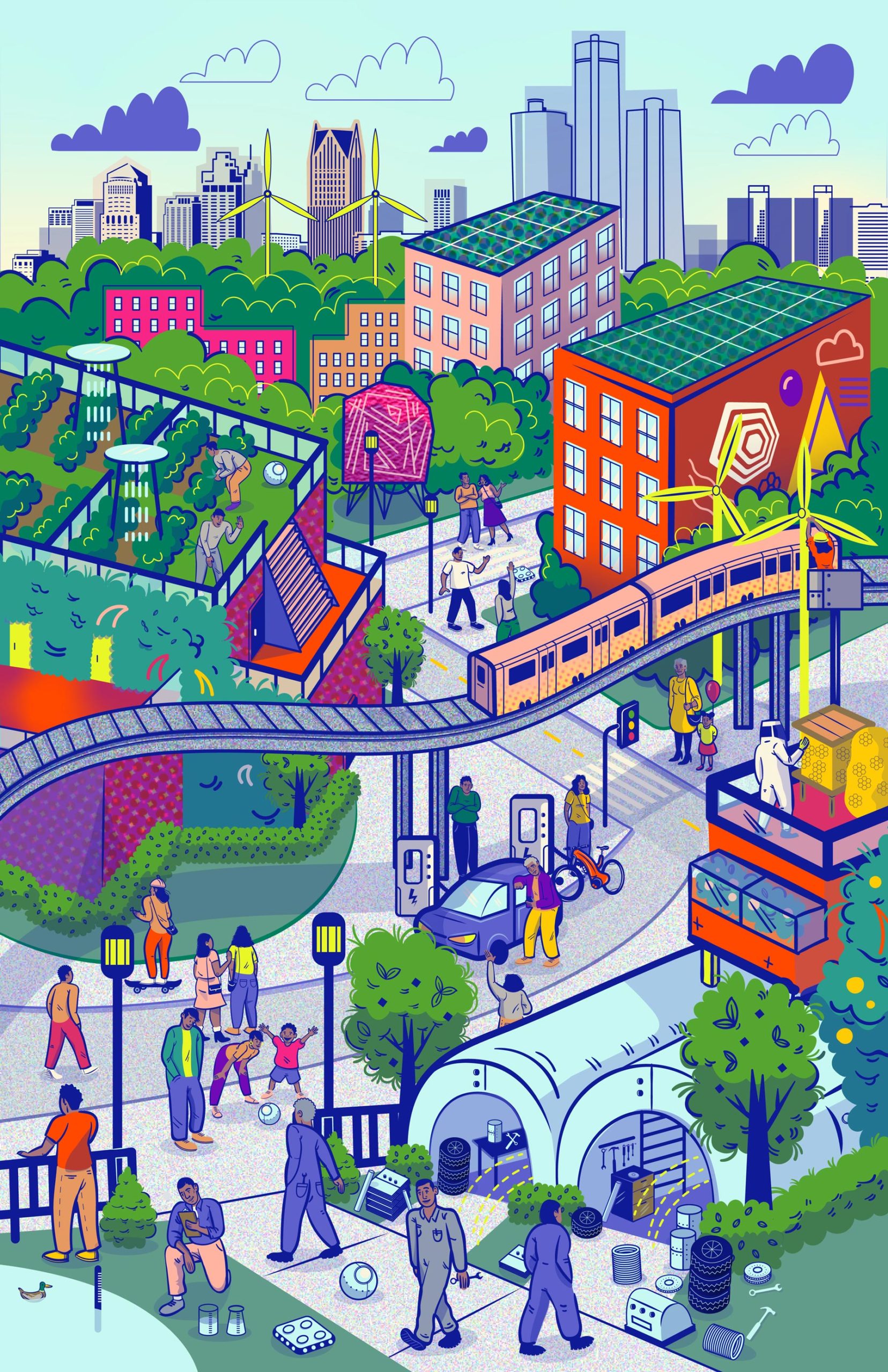Taubman College of Architecture and Urban Planning at the University of Michigan has launched a first-of-its-kind Bachelor of Science in Urban Technology degree that will welcome its inaugural class of students in winter 2022.
Urban Technology is an emerging field at the intersection of technology, urbanism, and design. Urban transformation is increasingly driven by private enterprises beyond familiar areas such as real estate development, and investments in urban technology totaled more than $75B from 2016–2018, according to CityLab. The footprint and ambition of companies such as Airbnb, WeWork, Katerra, Tesla, Uber, Lyft, Bird, Amazon, and Sidewalk Labs operate outside of traditional built environment fields such as architecture and planning, but have a clear impact in those realms. Urban technology students will bring deep urban understanding to the design and entrepreneurship of initiatives such as these, and their applications toward policy, advocacy, and private enterprise.
Taubman College’s Bachelor of Science in Urban Technology will teach students how to mobilize data- and technology-based strategies that improve outcomes for city dwellers so that they can help businesses, governments, and communities address how technology enables us to see and understand cities differently — and how it could help us shape and inhabit cities in new ways.
“In keeping with our mission as a public institution with a deep commitment to diversity, equity, and inclusion, we will teach our students how to design and create technology that makes cities more humane, just, and sustainable,” said Taubman College Dean Jonathan Massey.
Taubman College’s bachelor’s degree program is unique in the United States.
“No other undergraduate program combines technology, urbanism, and design as we do,” said Bryan Boyer, director of the program and assistant professor of practice in architecture. “We emphasize the role of design as the way of developing a vision for the future of urban services and the wherewithal to make that vision a reality.”
Boyer began his career in technology by designing and programming user interfaces for a number of early stage startups. He is cofounder of the architecture and strategic design studio Dash Marshall, and previously was cofounder of Helsinki Design Lab at the Finnish Innovation Fund, one of the first design teams working at a national level, with a focus on policy issues such as carbon reduction, education, welfare services, and economic development. Other faculty teaching in the program similarly mix experience in teaching and in real-world practice. Their research interests include participatory planning, informatics, urban systems, urban entrepreneurship, public sector innovation, digital culture and the built environment, how the internet and media shape cities, and the design and ethics of machine learning.
“The University of Michigan’s breadth of expertise and passion for thinking in new ways uniquely position us to prepare students for the new and growing urban technology market sector,” said Boyer. “We have leading programs in architecture and urban and regional planning, engineering, and information, as well as a strong spirit of cross-campus collaboration and entrepreneurship. By harnessing our existing strengths and augmenting them with new and innovative coursework, our goal is to create students who are equally literate in questions of citymaking as they are in the development of technologies, not only professionally but also as citizens of the world.”
Through the program’s unique structure, students will begin classes at the University of Michigan’s Ann Arbor campus during winter term. As students advance in their studies, elective spring term travel offers the chance to visit and study in global centers of urban technology like New York, San Francisco, and Bangalore. The program will leverage relationships with alumni in the public and private sectors, as well as industry partnerships to show students how leaders in the field are reimagining city life, and they will learn from companies working on smart cities, the Internet of Things, new mobility, and other areas of urban technology.
While urban technology is already changing cities in a big way, Boyer stresses that the purpose of the curriculum is not to build technology for its own sake: “Our curriculum is designed to help students identify a call to purpose that will guide them throughout their careers. As leaders who occupy the intersection of cities, technology, and design, our students will have what it takes to navigate the uncertainties of the 21st century.”
Learn more about the Bachelor of Science in Urban Technology here.





